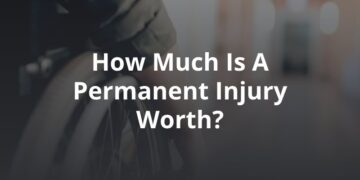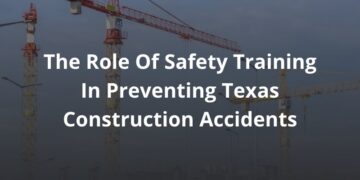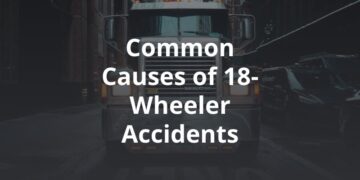Although riding a motorcycle is fun, it can also be dangerous: the Insurance Institute for Highway Safety notes that a total of 5,014 motorcyclists were killed in crashes in 2019, more than double the number in 1997. Though you may be doing everything you can to ride safely, motorcycle accidents do happen — here is what you should do if you are in one.
How do motorcycle accidents commonly occur?
There are many different reasons for motorcycle accidents; some of the most common ones are:
- Going at a high rate of speed
- Failure to observe traffic rules or signals, such as going through a red light
- Reckless or aggressive driving or riding
- Failure to yield or look before making a move on the road, such as a car turning left or switching lanes without properly checking for motorcycles
- Distracted driving, such as a driver improperly using their phone
- Intoxicated or impaired driving due to drugs or alcohol
What kinds of injuries might they result in?
As you can imagine, when a motorcycle meets a car — or even worse, a commercial vehicle — the resulting crash can mean extremely serious injuries for the motorcycle rider.
Many motorcycle riders suffer broken bones, abrasions, road burns, and severe skin injuries in an accident. Head injuries, concussions, and traumatic brain injuries are not uncommon, as are back and spinal injuries. Some very serious injuries can result in the loss of limbs or digits, paralysis, internal injuries or bleeding — and even wrongful death.
Wearing protective gear can prevent some of the most serious injuries that occur in a crash. According to the IIHS, for example, helmets are 37% effective in preventing death and 67% effective in preventing brain injuries in a motorcycle crash.
What should you do after a motorcycle accident? Your must-do checklist:
Immediately after the accident, move to a safe area, leaving your helmet and safety gear on, and call the police and first responders.
- If you are able, take pictures at the scene of the accident, including detailed pictures showing any damage to your motorcycle. Be sure you collect contact information for any witnesses, as well as the other driver. Retain copies of any police reports, notes, or other documents at the scene.
- Get proper medical treatment, both by visiting a hospital or emergency room immediately after the accident and by seeking out follow-up care as needed. Keep in mind that some motorcycle accident injuries can take a while to manifest, so following up with the necessary testing, imaging, and treatments is a must.
- Contact an experienced motorcycle accident attorney to go over the facts of your crash and discuss your options.
- Continue to keep good records of your medical treatments and expenses, along with other expenses you incur as a result of your accident. Keep a journal of your pain levels, discomfort, and emotional and mental anguish, noting how they are impacting your daily life.
- Work with your attorney to file an insurance claim. Keep all correspondence with the insurance company, as well as copies of the insurance policies that may be affected.
What kinds of compensation may be available?
Because injuries in a motorcycle accident can be severe, the damages suffered by the rider can also be high. For starters, a crash often renders your motorcycle a total loss, making its replacement a part of your out-of-pocket costs. A knowledgeable motorcycle accident attorney can help negotiate a settlement to ensure you will be compensated for your full loss.
Medical expenses are another part of damages for which you may be compensated. These include your initial visit to the emergency room or hospital immediately after your accident, as well as any costs you incur later, such as the costs of medical imaging and testing, doctors’ visits, hospital stays, and prescription costs.
In addition to your out-of-pocket costs, often called special damages, you can also recover for certain non-economic losses you have experienced as a result of your accident.
Pain and suffering, along with mental anguish, are some of the most common general damages. Also included are the non-tangible things you’ve lost as a result of the crash—for example, a loss of enjoyment of daily activities, such as playing with your children, which you are no longer able to do. If you are unable to work presently or in the future as a result of your accident, you can also recover your lost wages or income.
A motorcycle accident can seriously derail your life, but an experienced Austin motorcycle accident lawyer can help you recover for some of the things you have lost.
At FVF Law, we aim to educate you about your rights, important decisions, and possible next steps after your motorcycle accident. We will work with you to explore your options and discuss the legal process for negotiating a settlement and filing a suit. Contact our motorcycle accident attorneys for a free consultation about your case.






